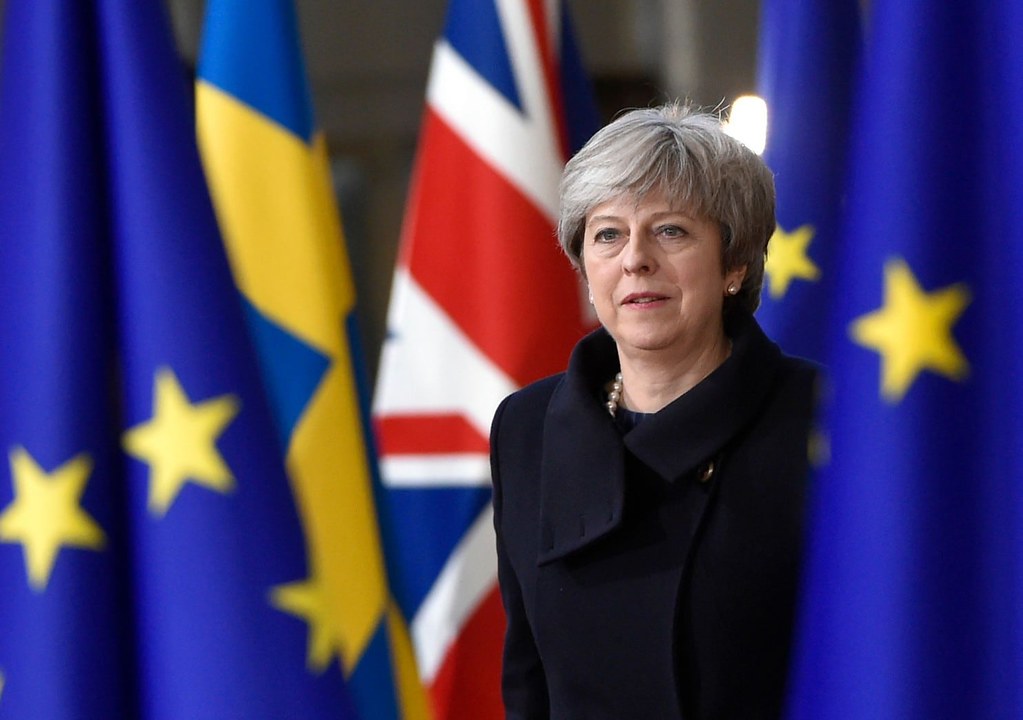Brexit transition finalized
March 20, 2018 | Expert Insights

The European Union and UK have struck a joint legal agreement that has nearly finalized all the legal terms of the Brexit transition deal. The milestone agreement has however been criticized heavily by politicians in the UK.
Background
In June 2016, Britain narrowly voted to leave the EU. The country is currently negotiating with EU officials to draw a roadmap for its exit. It is scheduled to depart at 11pm UK time on Friday 29 March, 2019.
Brexit was one of the biggest geopolitical risks of 2016 that became a reality. The referendum had attracted the attention of the whole world, as the outcome not only looks into impacting the future of UK but also bring about huge changes in the future of globalization. From a strategic perspective, Brexit may be the first wave of anti-globalization for most popular nations.
In December 2017, UK Prime Minister Theresa May struck a last-minute deal with the EU regarding key issues and the negotiations would now move to the next phase. According to this deal, there will be no "hard border" in Ireland. The rights of EU citizens in the UK and the rights of UK citizens living elsewhere in the EU would also be protected in accordance to the deal.
The second phase of the negotiation covers the arrangements for transition towards the UK's withdrawal, together with the framework for the future relationship. On 15 December 2017, the European Council adopted guidelines for this phase. The document confirmed that progress in the first phase was "sufficient", while stating that commitments made in that phase must be "translated faithfully into legal terms as quickly as possible." In March 2018, a joint report agreed by both sides stated that the UK would maintain regulatory alignment with the EU to prevent a hard border.
Northern Ireland issue
The Good Friday Agreement (GFA) or Belfast Agreement was a major political development in the Northern Ireland peace process of the 1990s. Northern Ireland's present devolved system of government is based on the agreement. The agreement also created a number of institutions between Northern Ireland and the Republic of Ireland, and between the Republic of Ireland and the United Kingdom. The Good Friday agreement which came into effect in 1999 put an end to checkpoints, security barriers and observation posts that had existed during the period of the Troubles.
Analysis
In what is being hailed as a breakthrough, it has been reported that Britain and the European Union have struck a Brexit deal. After months of negotiations, the milestone development has resulted in a joint legal document that will make Brexit inevitable.
Under the terms, the UK will be able to negotiate trade deals with other countries during the 21-month transition, which begins when Britain officially leaves the EU at the end of March 2019. The terms dictate that even after UK will be able to negotiate trade deals with other countries during the 21-month transition – UK is slated to leave the EU on March 2019. In return, UK has agreed to give rights to EU citizens arriving to the region during the transition. However, issues regarding Northern Ireland continues to exist. A BBC report notes that “Northern Ireland will effectively stay in parts of the single market and the customs union in the absence of other solutions to avoid a hard border with the Republic of Ireland.”
“British citizens and European citizens of the 27 who arrive during the transition period will receive the same rights and guarantees as those who arrived before the day of Brexit,” the EU’s chief negotiator, Michel Barnier, told reporters during a joint press conference with Davis in Brussels.
The deal however has gotten mixed reaction in the UK, with many prominent politicians criticizing May. Douglas Ross, the Tory MP for Moray, said: “There is no spinning this as a good outcome. It would be easier to get someone to drink a pint of sick than try to sell this as a success.”
Scottish MPs are also concerned regarding how the deal with affect Fisheries. The agreement notes that UK will be guaranteed its share of fishing catch during the transition period. However, UK will be a part of the Common Fisheries Policy, yet without a direct say in its rules, until the end of 2020
Scotland's First Minister Nicola Sturgeon tweeted that the agreement for fishing during the implementation period was "shaping up to be a massive sell-out of the Scottish fishing industry by the Tories". She added: "The promises that were made to them during #EUref and since are already being broken - as many of us warned they would be."
Assessment
Our assessment is that it has become clear that it will be Britain that will be making heavy concessions and compromises to ensure a smooth Brexit. This will negatively affect Theresa May’s cabinet. There are still concerns that the deal may fall through due to lack of consensus regarding Northern Ireland border.








Comments